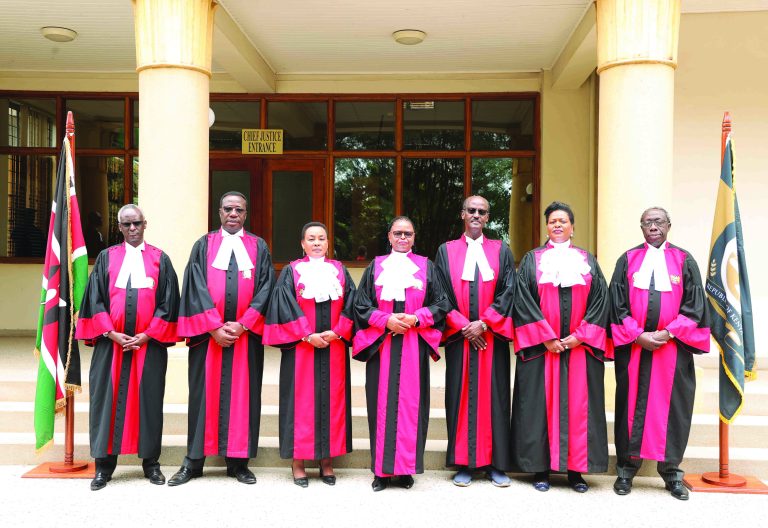A proposal to enhance retirement benefits for judges of superior courts has met stiff resistance from the Salaries and Remuneration Commission (SRC), which warns the move would cost taxpayers over Sh15 billion and undermine constitutional principles.
In a detailed memorandum dated July 25 and addressed to National Assembly Clerk Samuel Njoroge, SRC argues that the Judges Retirement Benefits Bill 2025 contradicts national policies and oversteps the commission’s constitutional mandate. The Bill is currently before Parliament for consideration.
According to the SRC, the proposed law not only disregards the government’s existing policy on retirement benefits, particularly the Defined Contribution Scheme, but also sidelines SRC from its mandated role in determining state officers’ remuneration.
Acting SRC Chief Executive Officer Margaret Njoka said the commission is particularly concerned that the Bill grants unchecked powers to the Judicial Service Commission (JSC) to recommend judges’ retirement benefits without SRC’s active role, describing the move as a “direct usurpation” of SRC’s mandate.
“The proposed review of retirement benefits for top judges of superior courts constitutes a direct usurpation of SRC’s exclusive constitutional mandate to set and regularly review the remuneration and benefits of state officers,” said Njoka.
She added that the proposals, including post-retirement medical and transport benefits projected to cost Sh1.74 billion in the first year alone, were not approved by SRC as required by Article 230 (4)(a) of the Constitution. Njoka pointed out that this principle had already been affirmed by the High Court in 2015.
The Bill seeks to classify “pensionable emoluments” as both basic salary and house allowance, contrary to a communication from SRC to JSC dated October 13, 2023, which clarified that only basic salary should be considered for gratuity and pension purposes.
If enacted in its current form, the law will apply to judges currently in office, future appointees, and those who retired after the 2010 Constitution came into force on August 27 of that year.
The commission also warns that the Bill contains a supremacy clause declaring that, in case of any conflict with other laws, its provisions shall take precedence.
This would effectively place the proposed law above the SRC Act, further diminishing SRC’s authority.
According to the Constitution under Article 260, judges of superior courts are state officers, just like the President, Deputy President, Cabinet Secretaries, MPs, and heads of constitutional commissions
. Njoka cautioned that awarding enhanced benefits to judges could trigger similar demands from other state officers.
“This would result in a significant ripple effect across the public sector, thereby exacerbating an already constrained fiscal space and undermining efforts toward sustainable public expenditure,” Njoka stated.
The SRC has therefore called on Parliament to amend the Bill to align it with constitutional principles, financial prudence, and the existing public service remuneration policies.
The government is already grappling with severe financial challenges, including high public debt and revenue shortfalls. These pressures recently led the Treasury to slash capitation funds for secondary school students from Sh22,244 to Sh16,900 per learner annually.

